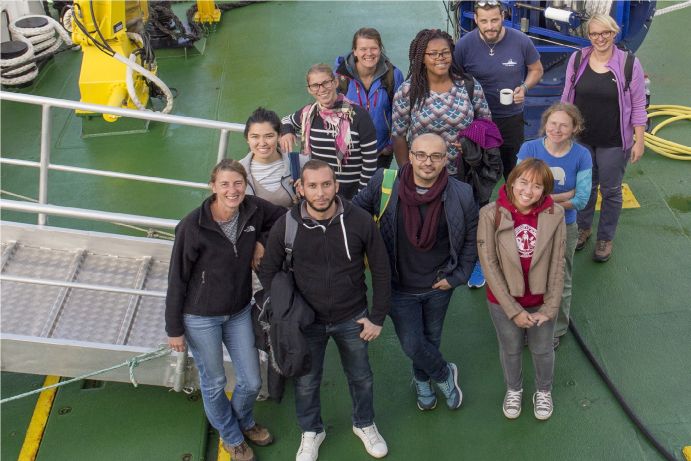Summer School zur Küstenforschung: Küstendynamik - Konsequenzen für Küstenschutz und Ökologie
Die Summer School Küstenforschung unter Beteiligung des Verbunds Küstenforschung Nordsee Ostsee, kurz KüNO, gibt einen Überblick über die verschiedenen aktuellen Forschungsthemen rund um die Ostsee. Die Themen reichen von der geologischen Entwicklung der Ostsee über ihre natürliche Küstendynamik und Küstenschutzmaßnahmen bis hin zu biogeochemischen Prozessen und den ökologischen Charakteristiken der baltischen Küsten. Erfahrene Geologen, Ingenieure, Biologen, physikalische Ozeanografen und Experten von zuständigen Behörden vermitteln umfangreiches Wissen über das Binnenmeer. Die Summer School verspricht zwei Wochen intensiven Trainings auf der Insel Hiddensee mit einer eintägigen Expedition auf dem Forschungsschiff Elisabeth Mann Borgese. Die Summer School richtet sich an fortgeschrittene Masterstudenten, Doktoranden und promovierte Nachwuchsforscher. Interessierte können sich bis zum 30. April 2018 bewerben.
The coastal summer school will take place on the Baltic Sea island of Hiddensee, located west of Germany's largest island, Rügen. Hiddensee is the perfect place to show various topics of the summer school: eroding sandy shorelines and cliffs, sediment transport and the deposition of sand and formation of sandbanks and spits. Due to these dynamical processes, a variety of historical as well as modern coastal protection measures can be found on the island such as dunes, dykes, sand fillings and sea walls. Moreover, Hiddensee is famous for a variety of valuable coastal habitats showing a great biodiversity.
The coastal summer school addresses advanced Master students, PhD students and young postdocs with a background in marine sciences such as geology, oceanography, biology, coastal engineering or coastal zone management. The language of the school is English.
Since 2002, the coastal summer school is annually realized in cooperation of some of the leading national centers for coastal research in Germany: Leibniz Institute for Baltic Research Warnemünde, Helmholtz Centre Geesthacht, Alfred Wegener Institute for Polar and Marine Research (Helmholtz Association of German Research Centers). In 2018 additional supporting partners are the University of Greifswald as well as the project Coastal research in the North Sea and the Baltic Sea, funded by the German Federal Ministry of Education and Research.




